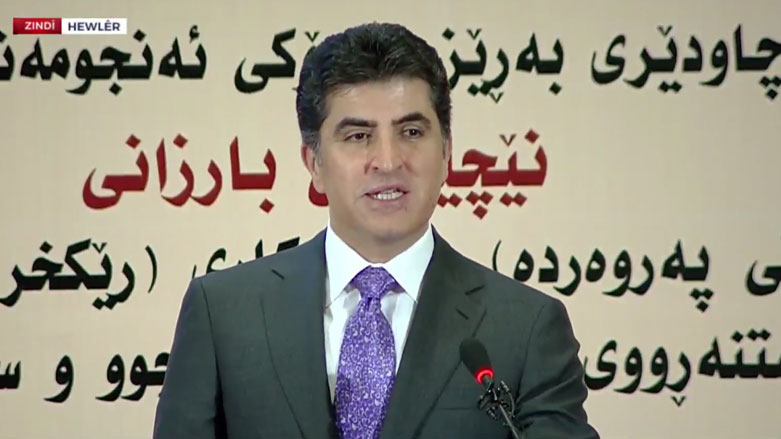PM Barzani calls for more investment in Education in Kurdistan

ERBIL, Kurdistan Region (Kurdistan 24) – The Kurdistan Regional Government (KRG) on Thursday declared that the rate of illiteracy in the Kurdistan Region had dropped from 34 percent in 2014 to 15 percent in 2017, despite the economic crisis which affected investments in the educational sector.
At a conference on education held in Erbil in cooperation with United Nations Children’s Fund (UNICEF), the Kurdistan Region’s Prime Minister, Nechirvan Barzani, announced the milestone achievement for the Region while recognizing the obstacles the government faces and the need to invest in education.
“Three years ago, we developed plans to build 300 new schools in the Kurdistan Region. The project was put on hold due to the economic crisis and the lack of support from Baghdad,” Barzani stated. “Despite that, illiteracy rates fell from 34 percent to 15 percent.” The number of schools in Kurdistan has increased over the last 25 years from 1,320 to 6,789.
Barzani emphasized that the cut in the federal budget share by Baghdad in 2014 negatively affected various sectors of the Kurdish economy, including the education sector. The global drop in oil prices and the war on the Islamic State (IS) also contributed to the financial crisis.
“Despite our financial hardships, the KRG did its best not sacrifice the educational sector,” he said.
Barzani noted that the Kurdish government wishes to continue investing in the school system and raise its standards to be a global competitor and match those in Western nations.
“Children in the Kurdistan Region are all taught in their mother tongue, depending on their heritage and location, which is a rare phenomenon around the world,” the Minister of Education, Pshtiwan Sadiq, stated.
“We need more support to develop a comprehensive curriculum in the Kurdistan Region,” he said. “We are also looking to translate various materials into English.”
“No government can afford to reduce investment in education,” UNICEF Iraq Representative Peter Hopkins said at the conference. “We need to increase investment in the KRG’s educational sector.”
The Kurdistan Region is home to hundreds of thousands of internally displaced children and refugees who have been out of the school system for over three years, an issue which is becoming more of a priority as the fight against IS draws nearer to an end.
